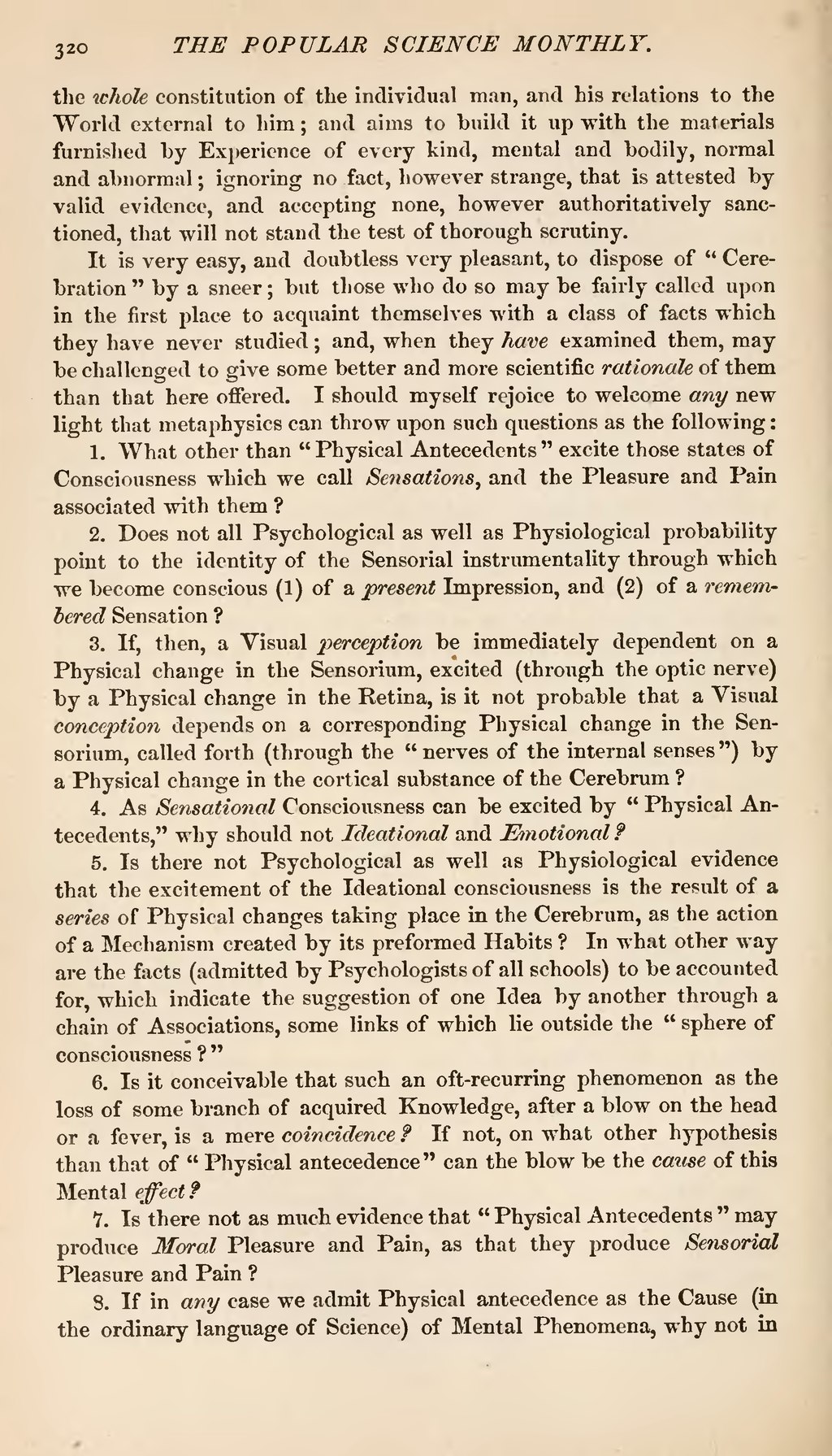the whole constitution of the individual man, and his relations to the World external to him; and aims to build it up with the materials furnished by Experience of every kind, mental and bodily, normal and abnormal; ignoring no fact, however strange, that is attested by valid evidence, and accepting none, however authoritatively sanctioned, that will not stand the test of thorough scrutiny.
It is very easy, and doubtless very pleasant, to dispose of "Cerebration" by a sneer; but those who do so may be fairly called upon in the first place to acquaint themselves with a class of facts which they have never studied; and, when they have examined them, may be challenged to give some better and more scientific rationale of them than that here offered. I should myself rejoice to welcome any new light that metaphysics can throw upon such questions as the following:
1. What other than "Physical Antecedents" excite those states of Consciousness which we call Sensations, and the Pleasure and Pain associated with them?
2. Does not all Psychological as well as Physiological probability point to the identity of the Sensorial instrumentality through which we become conscious (1) of a present Impression, and (2) of a remembered Sensation?
3. If, then, a Visual perception be immediately dependent on a Physical change in the Sensorium, excited (through the optic nerve) by a Physical change in the Retina, is it not probable that a Visual conception depends on a corresponding Physical change in the Sensorium, called forth (through the "nerves of the internal senses") by a Physical change in the cortical substance of the Cerebrum?
4. As Sensational Consciousness can be excited by "Physical Antecedents," why should not Ideational and Emotional?
5. Is there not Psychological as well as Physiological evidence that the excitement of the Ideational consciousness is the result of a series of Physical changes taking place in the Cerebrum, as the action of a Mechanism created by its preformed Habits? In what other way are the facts (admitted by Psychologists of all schools) to be accounted for, which indicate the suggestion of one Idea by another through a chain of Associations, some links of which lie outside the "sphere of consciousness?"
6. Is it conceivable that such an oft-recurring phenomenon as the loss of some branch of acquired Knowledge, after a blow on the head or a fever, is a mere coincidence? If not, on what other hypothesis than that of "Physical antecedence" can the blow be the cause of this Mental effect?
7. Is there not as much evidence that "Physical Antecedents" may produce Moral Pleasure and Pain, as that they produce Sensorial Pleasure and Pain?
8. If in any case we admit Physical antecedence as the Cause (in the ordinary language of Science) of Mental Phenomena, why not in
